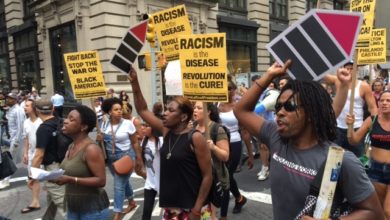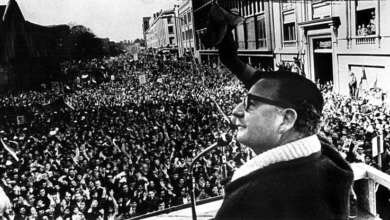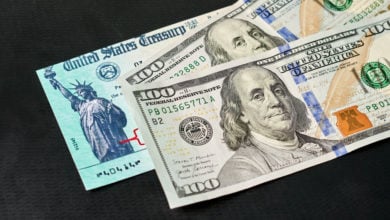Photo: Jimmy Carter meeting with Ronald Reagan in 1981
James Earl “Jimmy” Carter Jr., has passed away at 100, widely lionized around the world more for his post-presidential career than his Presidential tenure. After leaving the Oval Office, Carter would become known for speaking truths rarely uttered in, or from, the halls of power. Calling the U.S. “an oligarchy with unlimited political bribery,” and saying “Israeli policy…represented instances of apartheid worse even than those that once held sway in South Africa.”1
This openness to critiquing the U.S. government itself made his organization, the Carter Center, one of the few institutions that even many victims of Imperialism considered “fair and impartial” – Giving it an outsized role in many international events that further lent stature to former President Carter.
Carter’s presidency was deeply consequential, ushering in the “neoliberal” era of capitalism that reigns to this day. President Carter kickstarted the attacks on union power, wages, and regulations that have significantly lowered working class living standards in the ensuing years. Carter’s presidency foundered on its halfway house approach to these issues and others like Civil Rights and militarism, leading him to be swept away by the “Reagan Revolution” as the ruling elites sought more consistency in the assault on the working class at home and abroad.
Carter’s legacy is perhaps best defined by his inability, as either President, or post-Presidency, to arrest the rightward political drift of the US Empire. This was the case whether that was full complicity as Commander-in-Chief or as a highly-placed critic later in life.
Spirit of ‘76
As 1976 dawned, inflation and unemployment were skyrocketing. Major industries were sputtering and poverty combined with white flight was ravaging the urban landscape. Workers were restless and movements demanding militant strike action could not be ignored. Imperialism was defeated in Vietnam and in retreat all across Africa. The last elected President had resigned in disgrace.
Carter presented himself as an “outsider,” far from Washington’s scandals. He was Born-Again, but not holier than thou. He hung a portrait of Dr. King in the Georgia capitol, but had “nothing against a [white] community” that was “trying to maintain the ethnic purity of their neighborhoods.”2 He promised to clean up the Watergate mess and restore “trust,” in U.S. institutions. The prosperous peanut farmer also had no real ties to labor unions, but did vaguely promise to create jobs and improve healthcare and education. While pledging to look at cutting military spending, he also promised to be “tougher” with a more “muscular” posture towards the Soviets.3
He added to his “down home” appeal by tapping into the (often overlapping) rock and country scenes and taking to the stage with the Allman Brothers, Charlie Daniels Band, Willie Nelson and more.4
Carter was the first of the “New Democrats”: Not wanting to make major changes to the capitalist system, willing to loosely concede rights on the job and curb of the most flagrant aspects of segregation, and imposing regulations on corporations and to protect the environment with a rising standard of living while remaining committed to keeping these impulses within clear limits.
The Scene in ‘76
By 1976 the bourgeoisie was very unhappy with their own concessions that were made in the context of the 30 or so years of spectacular profits starting in World War Two. The 70s had shaken the faith of the big businessmen who ran the country. Profits were dropping, competition with foreign firms was increasing, urban centers were in crisis, and capitalism was increasingly being questioned.
In 1974 the board of the Chamber of Commerce had formed a task force including executives from US Steel, GE, GM, Phillips Petroleum, 3M, Amway, and ABC and CBS to coordinate a “crusade…against political equality and shared prosperity.” Corporate PACs grew by the hundreds. Groups like the Business Roundtable, the American Legislative Exchange Council (ALEC), the Heritage Foundation, the Cato Institute, the Manhattan Institute, were founded during this time.5
Carter and his team were on board with protecting the power and privilege of the country club set, but also understood if they went too far they could provoke a social explosion.
Tens of thousands were members of various communist groups, embedded in the labor movement and deep in many oppressed communities, regularly organizing and communicating with many more. In unions from the Steelworkers to the Teamsters, miners and healthcare workers, serious left leaning caucuses were inspiring shop floor militancy. In the Black, Chicano and Indigenous communities, those hoping to take advantage of new political opportunities also offered challenges to the power structure.
At the top and the bottom of the social pyramid, then, increasingly organized groups were pushing for major change to resolve the contradictions besetting society.
In transition
Despite having promised to create millions of jobs, the Carter team kneecapped the major proposal to do so, ensuring that language “any banker or manufacturer would applaud” was inserted in the bill.6 He did this while refusing to raise the minimum wage above the poverty line, saying it would hurt “business confidence.”7
A top priority for labor was to enshrine “common situs” picketing into law after it had been outlawed by the Supreme Court. Common situs was used mainly by construction unions to cut through the tangled webs of subcontractors that enabled low wages and dangerous working conditions. Despite having previously promised to sign such a bill, Carter refused to lift a finger after a campaign by the National Association of Manufacturers.8 Carter, also refused to support minor changes to “right-to-work” laws and invoked Taft-Hartley against the United Mine Workers national strike of ‘77-’78.9
President Carter presided over efforts to “deregulate” airlines, trucking, railroads, telecommunications, and natural gas. This involved gutting labor and consumer protections, drastically lowering wages and eliminating benefits.
Civil rights
Segregated schools had been deliberately unequal, parceling out more resources for white schools than Black. Mirroring residential segregation, Black and white schools were in very different places. To create public school systems that maximized the available resources and ended segregation, students often had to be sent by bus to a school outside of their neighborhood.
Busing was linked to “white flight,” where whites with the means were fleeing to the suburbs, creating well-funded, racially and socioeconomically more exclusive communities. Many poorer whites unable to move the suburbs fiercely opposed busing as an assault on the “psychological wage” of racial superiority as their material circumstances slid downard.
These issues created a charged political environment that quickly became less about the issue of busing and more about the rights of whites to create ethnically exclusive communities of various kinds. As the Rev. Jesse Jackson famously said: “it’s not the bus, it’s us.”
Blacks being excluded from all but a token presence in all graduate-level professions, regardless of merit, was a major driver of inequality since under capitalism, where your paycheck is your ration card. If you are excluded as a people from the best paychecks, it reinforces structural inequality at every level.
Institutions of higher education, responding to the massive movement against racism in the 1960s, often adopted “Affirmative Action” policies that used explicit racial quotas to remedy past discrimination. None of these programs devalued “merit.” Faced with limited space, schools would in the minority of instances favor a Black (or female) applicant over a white (or male) applicant when both fell within an acceptable range regarding other important criteria.
Racists created a web of lies to suggest that “unqualified” Black people were displacing “qualified” white people, leading our professions towards collapse. Affirmative Action became a major rallying point for neo-segregationists, falsely trying to present Civil Rights measures as going beyond equality and becoming “reverse racism.”
Faced with this, Carter tried to find middle ground that did not truly exist. When the Supreme Court took up the issue of Affirmative Action in higher education, the now infamous Bakke case, Carter weighed in supporting Affirmative Action generally, but not the use of “quotas” to accomplish it. Similarly, while Carter had opposed busing as a candidate, as President he was rhetorically more supportive. However when Congress sought to heavily limit the practice, Carter fairly easily acquiesced. While acknowledging the principle of equality, Carter consistently sacrificed the only really effective means.
The international scene
By 1977 socialist movements were in power in significant parts of the globe. Africa in particular was becoming a new center of revolutionary fervor. In small countries like Jamaica and large ones like India, the influence of “Non-Aligned” politics was limiting the ability of Western capital to control the terms of world trade that had benefited them since the 17th century. The CIA even had to get involved in a “constitutional coup” to keep Australia in line.10
Carter sought to channel the general discontent of the ruling class about declining hegemony into clear policy. “Human rights” in particular became a hypocritical hallmark of his approach to the world. While constantly rapping the knuckles of the Soviet Union, Carter continued to treat with kid gloves, if not open support, some of the most repressive regimes on earth. As always, what really mattered was a government’s attitude towards U.S. Imperialism.
For instance, Augusto Pinochet, Chile’s brutal dictator, who had murdered tens of thousands and tortured tens of thousands more, was a close US ally. In one meeting Carter asked Pinochet for his suggestions on how to improve “human rights” in Chile and refused to take any substantive action when it was conclusively proven that Pinochet’s agents had carried out a car bombing in Washington D.C.
Carter sought to induce Arab governments into normalizing relations with Israel, with the least substantive concessions to the Palestinian cause possible. The end result was the “Camp David Accords” where Egypt would recognize Israel in exchange for return of the Sinai peninsula. The Palestinians got nothing, but suffered a major loss with the most powerful Arab nation abandoning their cause.
In Southern Africa, Carter’s actions were more hemmed-in by domestic considerations. Black America was seriously invested in a total end to white rule in Southern Africa. This was a fact Carter could not just ignore. He couldn’t embrace Black rule totally, however. South Africa and Zimbabwe were fabulously wealthy and the liberation movements in both countries were left-wing. A major shift in the terms of trade, access to resources, and accumulated stores of white wealth would shift the world balance of power away from the main capitalist empires.
Carter backed the end of the “Byrd Amendment” that essentially prohibited sanctions on South Africa and “Rhodesia,” but did not enact any sanctions. Carter pushed Ian Smith’s “Rhodesian” government to negotiate, but tacitly endorsed the sham elections in 1979 that gave a veneer of majority rule to a “whites only” reality.
Iran and Afghanistan also played defining roles in Carter’s presidency. Both countries were swept up in the broader wave against neo-colonialism breaking all across the Global South in the ‘70s. Both had autocratic rulers who tried to adapt to resource nationalism, land reform, women’s rights and expanded access to education while shunning the Soviet Union and positioning themselves as key allies of US Imperialism. The Shah of Iran, for instance, while nationalizing oil, became the number one supplier of oil to Israel and Apartheid South Africa, providing crucial support to cornerstone regimes of the Western order.11 All of this led Carter to offer significant support, especially to the Shah, as a bulwark against more radical possibilities in the region.
However, neither regime was able to build and maintain majority support and as the decade ended, fell. The Iranian Revolution of 1979 swept the Shah out of power, and supporters of the new government seized the US Embassy and took hostages. In Afghanistan, the communist movement would take power, and quickly thereafter, Soviet troops would enter the country to bolster their government.
Carter, under pressure from the “New Right” led by Ronald Reagan for “surrendering” the Panama Canal, used these events in West/Central Asia to harden his existing policy of “containing” communism and anti-imperialist sentiment around the globe. In his 1980 State of the Union address the president pronounced the “Carter Doctrine.” Which stated:
“An attempt by any outside force to gain control of the Persian Gulf region will be regarded as an assault on the vital interests of the United States of America, and such an assault will be repelled by any means necessary, including military force.”12
Shortly after Carter activated the “Rapid Deployment Joint Force” to coordinate for massive potential interventions into West Asia, Central Asia and the greater Horn of Africa as needed to enforce the Carter Doctrine. The Administration also brought back draft registration and proposed increases in the US military budget, shelving arms limitation agreements with the Soviets.
The Carter administration also helped facilitate the suppression of a pro-democracy uprising against South Korea’s military dictatorship in May 1980, sending an aircraft carrier to free up South Korean troops for a brutal crackdown that massacred at least 1,000.13 Carter also sought to deepen the divisions in the communist camp by continuing to improve relations with the People’s Republic of China – opening up official diplomatic relations, opening flows of US investment into China and encouraging China’s anti-Soviet foreign policy moves.
In foreign policy, like the domestic, Carter sought to balance competing priorities between the people and the powerful. Carter hypocritically abused “human rights” in a propaganda campaign against the Soviet Union while continuing or extending support to any nation, regardless of their rights record, that was on board with the basic goal of maintaining the preeminence of Western imperialism.
A long, active retirement
Carter remained very active in global affairs after his term. In 1982 he founded The Carter Center as a base of operations for a wide array of initiatives.
Most controversially, Carter bucked the consensus in favor of Israel in official U.S. political life. Over the years Carter became more outspoken regarding Israeli policies, likening them to Apartheid by 2006. His remarks caused a firestorm since no one of his position, or one close to it, in the US ever spoke out openly against Israeli crimes. Whatever its deeper motivations, Carter’s commentary created new space in the U.S. political discussion for partisans of Palestinian self-determination.
In 1994 Carter traveled to North Korea, at their request, to help jump-start negotiations with the United States. Carter’s trip would lead to renewed negotiations that sought to pursue a step-by-step normalization of relations. Also in 1994 Carter played a key role in negotiations between the United States and Haiti that led to the return of President Jean Bertrand Aristide, who was ousted in a CIA-backed coup in 1991, that also brought 15,000 US troops to the island to keep the Haitian government firmly within neoliberal lines.
Carter also took aim at income inequality, saying while accepting the Nobel Peace Prize that “the most serious and universal problem” on earth was “the growing chasm between the richest and poorest people.” Which was the root cause of “most of the world’s unresolved problems, including starvation, illiteracy, environmental degradation, violent conflict and unnecessary illnesses.”14 Calling on wealthy individuals and nations to “share with others an appreciable part of our excessive wealth.”15
His willingness to say things that, while perhaps obvious and factual, were politically taboo could feel like a breath of fresh air in our cloistered mainstream political culture.
As president, Carter sought to contain the growing contradictions of capitalism in favor of the system, but with a recognition that the critics weren’t all wrong. In his post-presidency, freed from “managing the common affairs” of the ruling class, Carter could speak out more forcefully also in an attempt to manage contradictions bedeviling the system and boosting its opponents. During his presidency, this meant leaning more in the direction of the powerful than the people, post-presidency, it meant leaning more towards the concerns and frustrations of the people.
Carter ended his life as a towering figure for exactly this reason: he took responsibility for the system whose leadership he was a part of, hoping to manage its health and promote its longevity.
References
- https://www.rollingstone.com/politics/politics-news/jimmy-carter-u-s-is-an-oligarchy-with-unlimited-political-bribery-63262/; https://www.haaretz.com/2006-12-11/ty-article/jimmy-carter-israels-apartheid-policies-worse-than-south-africas/0000017f-db7c-d3a5-af7f-fbfea0530000
- https://www.nytimes.com/1976/04/07/archives/carter-defends-allwhite-areas-says-government-shouldnt-try-to-end.html
- https://www.nytimes.com/1976/11/15/archives/carter-with-a-long-list-of-campaign-promises-now-faces-the-problem.html
- https://www.tennessean.com/story/entertainment/music/2024/12/30/jimmy-carter-death-president-nashville-country-music/77299842007/
- https://www.thenation.com/article/archive/how-wall-street-occupied-america/
- https://www.nytimes.com/1977/11/15/archives/carter-endorses-modified-version-of-humphreyhawkins-jobs-bill.html
- https://nwlaborpress.org/2025/01/carter-presidency-was-a-turning-point-for-labor/
- Pearlstein, 817
- https://nwlaborpress.org/2025/01/carter-presidency-was-a-turning-point-for-labor/; https://jacobin.com/2024/12/jimmy-carter-was-no-friend-of-union-workers-like-me
- https://www.theguardian.com/commentisfree/2014/oct/23/gough-whitlam-1975-coup-ended-australian-independence
- https://www.cambridge.org/core/books/abs/pahlavi-irans-relations-with-africa/southern-africa/B2E1B3E37DE7A3D6012A02F3248F65EE
- http://www.presidency.ucsb.edu/ws/index.php?pid=33079
- https://www.aljazeera.com/news/longform/2025/1/10/historians-say-jimmy-carters-human-rights-legacy-includes-grim-failures
- https://www.nobelprize.org/prizes/peace/2002/carter/lecture/
- Ibid.




